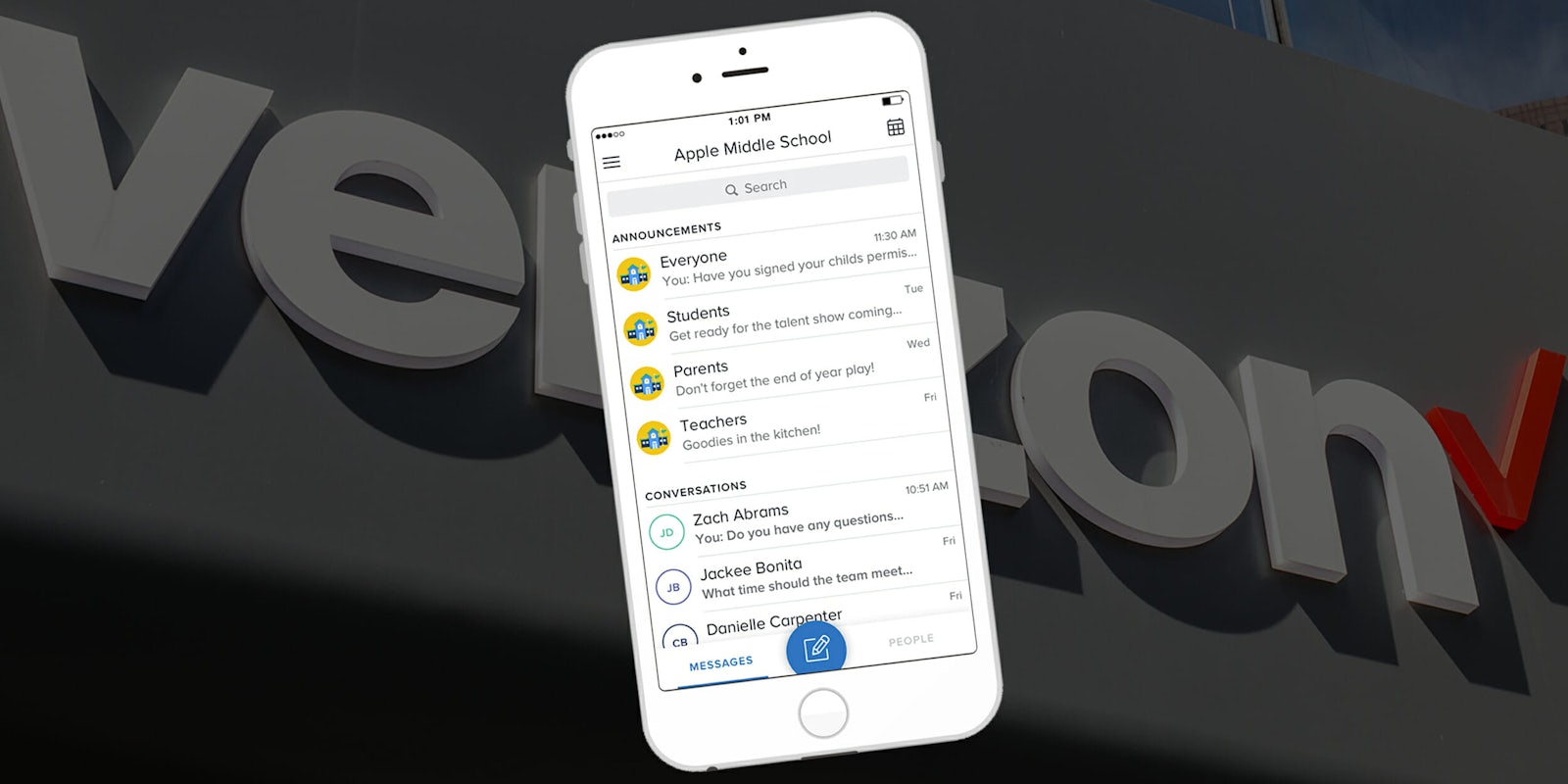Parents and teachers are in an uproar about a fee increase Verizon is planning for the popular education app Remind. In addition to texting, the app is a means of sharing files, assignments, instructions, and notes. Users opt into a group, such as a class or extracurricular activity, which allows them to communicate directly without exchanging phone numbers, a feature that makes it especially popular with parents and teachers alike.
But all that may change for Verizon customers who use Remind on Jan. 28, when the fees are set to go into effect. Remind said the change would affect users who have the free version and use it to communicate via text.
At least one Canadian company charges a similar fee. No other United States carriers have announced plans for one.
If the fees are enacted, Remind intends to discontinue providing free text messaging services to Verizon customers. Email and in-app communications will continue to work, and premium subscribers would be unaffected as Remind has said it will absorb the additional costs.
“The fee will increase our cost of supporting text messaging to at least 11 times our current cost—forcing us to end free Remind text messaging for the more than 7 million students, parents, and educators who have Verizon Wireless as their carrier,” Remind said in a statement, after noting that it has “always” paid for texts sent on its platform.
Verizon claims that the fee is necessary to fund spam-blocking services.
The fee increase follows a Federal Communications Commission decision last month to classify text messaging as an information service, rather than a telecommunications service, Ars Technica reported. The FCC’s decision was criticized by consumer advocates who said that the classification would allow carriers to interfere with non-spam communications in order to extract money from users. Critics also noted that the FCC’s justification for the decision—that it was necessary to allow carriers to block spam and robocalls—was essentially a misnomer, as carriers already have that authorization.
Technically, the fee is being charged to Twilio, the company that Remind uses to send text messages—1.6 billion per year, Verizon told Ars Technica. Twilio is passing the fee along to Remind.
The news did not land well with parents and educators, who answered Remind’s call to protest the increase under #ReverseTheFee.
#Teachers, parents, and students need to know about this and take action. @verizon is implementing a new fee that will make impossible for @RemindHQ to send reminders via text messaging! #ReverseTheFee! Communication is so vital in education. Please RT to help share this message. pic.twitter.com/NKJi8xMcuC
— Charlie Mirus (@ATeachersTeach) January 14, 2019
What’s up with @verizon needing more money from @RemindHQ texts between Teachers and their students? Shouldn’t we be about using technology to make things better without always trying to scrounge every 💰? Aren’t we better than that? #ReverseTheFee
— Patrick (@PatrickFraleyg) January 14, 2019
https://twitter.com/MrsHenkelGKHS/status/1084822168121282560
https://twitter.com/jstew254/status/1084800600712335360
Not just reminders/updates… one time I used it for SAFETY!!! My sch was closing early. One text notified all my parents. By the time I physically phoned them, they were arriving in parking lot & taking their kid home safely, missing the huge blizzard coming thru! #ReverseTheFee https://t.co/DGxnhcgqeW
— MsField (@dianamichlynn) January 8, 2019
Ars Technica noted that the companies’ responses to the situation seem to indicate that negotiations are ongoing.


